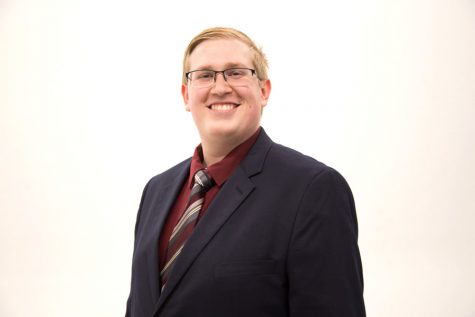
The office of Student Affairs announced in a brief email Nov. 3 that Point Park has hired a new mental health services counselor – Taffie Bucci.
Bucci is the first counselor in recent memory to be hired directly by Point Park as an in-house counselor. Prior to her hiring, the University had contracted to work with Patti Schwartz through UPMC. In transition, no counselor was available to students.
“I think it’s always a work in progress,” Bucci said in her office Monday. “One of the first things I do is to counsel students, so that’s pretty much what I’ve been doing for the last two weeks I’ve been here, especially because there wasn’t a counselor here for the month of October so I think people sort of stored up things to talk about.”
Bucci’s office, located in 714 Student Center, is a warm office space with tall windows, colorful area rugs, and several posters line the walls.
“Students should also know it’s a comfortable little area up here,” Bucci said. “It feels private – it doesn’t feel like 800 students are tromping by while you’re waiting to talk to somebody. Students need to know that they can just drop in – it’s seeming to be that with me that it’s helpful if they have an appointment. I’ve been so busy! Students need to know that they can come here and talk about anything.”
Prior to coming to Point Park, Bucci worked as a teacher near Carlisle, as a therapist, and most recently as director of “Alternatives,” the drug and alcohol arm of Turtle Creek Community Health Services. She has a master’s degree in social work from the University of Pittsburgh.
“I have not ever been [specifically] a university counselor, so this is, frankly, a huge, wonderful opportunity for me,” Bucci said. “I’ve worked at a few organizations over the past 11-to-12 years, all have been community mental health agencies, so I have a broad knowledge of mental health issues, and drug and alcohol issues.”
Bucci emphasized that the goal of her office is to cultivate a safe, comfortable environment open to all students, regardless of situation – nothing is too small or too big to tackle.
“Everybody’s pain is their own,” Bucci said. “If you’re in pain, and you need to talk to somebody about your difficulty of passing a certain class, that pain is just as real as the person whose mother is a substance user and can’t take care of anybody. It’s different situations, but the pain you feel is real.”
Sophomore global cultural studies major Mackenzie Groner said that the hiring of a full-time mental health professional is a step in the right direction.
“We didn’t have a mental health counselor [dedicated to Point Park] and I knew one girl in our class who went there and stopped going because it wasn’t helping,” Groner said. “She said it was awkward because she was just with someone who was going to be a mental health counselor but wasn’t yet to get some experience.”
Groner, a transfer student originally from Youngstown State University, said one of her main reasons for leaving YSU was the fact that she felt the health services there were pushing her “away from classes.” She describes YSU’s mental health services as a tag team effort of counselors from outside practices and constantly changing hours. “You never know how many people are struggling with this,” Groner said.
“I think it’s definitely a step in the right direction,” Groner said. “Mental health disorders are way more common than people think and when you have a certified professional on campus, I think it makes people a lot more comfortable.”
Mental health services are provided by the University by Bucci and psychology graduate student assistants, and the services are completely free and confidential.
In the future, Bucci hopes to bring more resources to campus through partnerships with other mental health providers and hopes to create events fostering open conversations. She is also working to create a chapter of “Active Minds,” which Bucci describes as “an organization to bring awareness to mental health issues and help reduce the stigma associated with them.”
The stigma, Bucci said, is a result of a mixture of false perceptions of mental health treatment and how people judge others who seek counseling.
“It never hurts to get somebody else’s opinion,” Bucci said. “Someone who’s a little bit more objective maybe, someone who’s not going to tell your friends behind their backs what’s going on, people are afraid to come to counseling because right away they’re like, ‘I don’t want anyone else to know because what are they going to think about me.’ People are really worried that they’ll look weak, and vulnerable and actually pursuing counseling to me is a very strong thing to do. It’s a strong thing to do to take care of yourself.”









